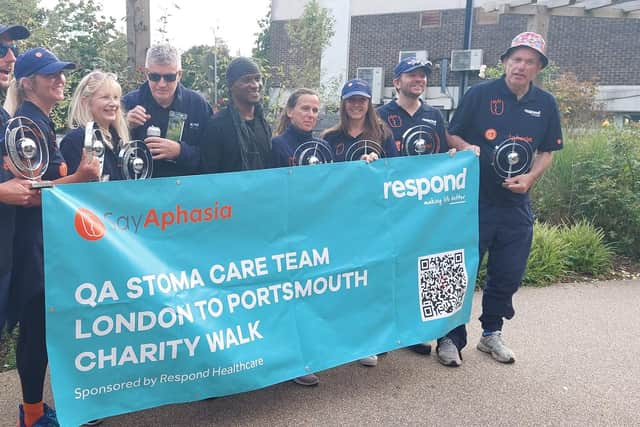QA Hospital: NHS staff raise more than £10,000 for SayAphasia after nurse suffers stroke and is left with ligfe-changing condition
and live on Freeview channel 276
Muhammed Joel Fraser worked as a nurse at Queen Alexandra Hospital in Cosham before he developed Broca’s Aphasia, a condition which left him unable to speak and with severely limited mobility.
After waking up and feeling tired on September 9 2022, Joel made his way to the bathroom to have a shower and suddenly collapsed. He was rushed to hospital and underwent surgery to have a blood clot removed. Since the traumatic incident, Joel, assisted by his wife Janine and his daughters, has been re-learning how to talk, read and do other tasks independently through the use of technology. He still undergoes speech and language therapy and physiotherapy for loss of function in his right hand.


Advertisement
Hide AdAdvertisement
Hide AdMembers of the hospital's Stoma Care Team walked 72 miles from Trafalgar Square in London to QA Hospital in support of their friend and colleague. They completed the gruelling change on Saturday, August 22, raising more than £10,000 for SayAphasia.
The team comprised Andy, Stoma Care nurse specialist Mike, consultant colorectal surgeon Paul, colorectal curgical care practitioner Emma, operating department practitioner Mackayla and Janet, PA to the Stoma Care Team. The walking team was supported by manufacturing engineer David and Stoma Care nurse specialist Jen.
Describing his journey with Aphasia, Joel said: "I feel dreadful. I feel like I cannot describe my emotions and feelings. It's like I'm behind walls, waiting to break free one day. There isn't a cure, but it’s possible to get back to almost 100 per centwith my speech. Speech therapy is key."